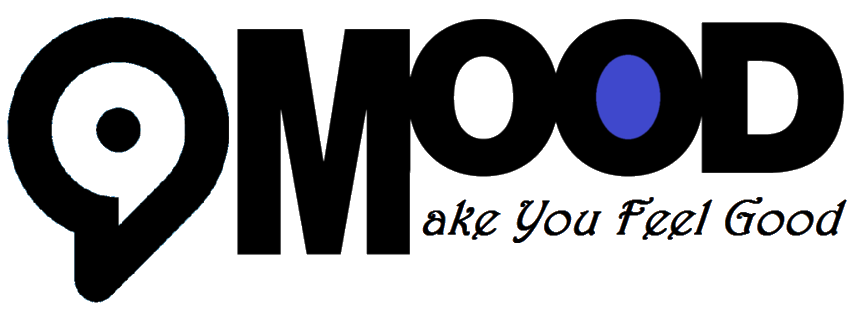Leviathan in Popular Culture: The Enduring Legacy of the Sea Serpent in Movies, Games, and Art
The Leviathan, a colossal sea serpent or sea monster, is an ancient mythical creature that continues to make waves in popular culture. Its origins date back to religious texts, most notably the Bible, but over the centuries, the Leviathan has evolved into a symbol of power, chaos, and the unknown. From Hollywood films to video games and even modern artwork, the sea serpent’s symbolic presence has been reinterpreted in a variety of ways, making it a timeless figure that continues to resonate with audiences. In this article, we’ll explore how the Leviathan has been brought to life in contemporary media and why it remains a prominent force in the imaginations of creators and audiences alike.

The Leviathan’s Roots and Evolution
The concept of the Leviathan first appeared in ancient texts, such as the Old Testament, where it was described as an unstoppable sea creature created by God. Over time, this image morphed into a symbol of chaos and power, representing a force beyond human control. In modern popular culture, the Leviathan has been given a variety of interpretations, ranging from a terrifying antagonist to a misunderstood creature of the sea. Its massive size, often compared to a serpent or dragon, is an enduring feature that has made the Leviathan a compelling subject for stories in literature, cinema, video games, and art.
While the sea serpent remains central to its depiction, the Leviathan’s symbolism has grown and shifted throughout history. Today, it frequently represents more than just a force of nature; it can also embody themes of environmental collapse, government control, or the unknown depths of the human psyche. The creature’s role in popular culture allows for an exploration of humanity’s relationship with nature, power, and the fears of the vast, unexplored world that surrounds us.
Leviathan in Movies and Television
The Leviathan has made notable appearances in movies and television shows, where it has taken on many forms, ranging from terrifying monsters to powerful forces of nature. In The 5th Wave (2016), for example, the sea creature is an alien threat that becomes synonymous with devastation and destruction. Similarly, in the film Pacific Rim (2013), the Kaiju—gigantic sea monsters—are inspired by creatures like the Leviathan, symbolizing the unchecked power of nature and the existential threat they pose to humanity.
In addition to blockbuster films, the Leviathan has also appeared in smaller films and TV series, often representing something more than just a physical threat. In The Legend of the Leviathan, a cult horror film, the sea serpent is used as a metaphor for humanity’s fear of the unknown and our struggle with our own instincts. The portrayal of the Leviathan as an unknowable force aligns with its biblical and mythological roots, where it is often considered a creature that cannot be fully understood or controlled.
Television has also embraced the sea monster. Shows like Supernatural (2005-2020) include a version of the Leviathan, portraying it as an ancient, malevolent entity capable of controlling the lives of others. This version of the creature, far removed from its original sea serpent form, still maintains the idea of a powerful and destructive force.
The Leviathan in Video Games
Video games have provided a platform for interactive encounters with the Leviathan and other sea serpents, allowing players to engage directly with the monstrous creatures that once existed only in myth. From the first Final Fantasy game (1987) to recent releases, the Leviathan has appeared as a summon, boss, or key narrative figure, often embodying the themes of destruction or protection.
In Final Fantasy, the Leviathan is portrayed as a majestic, ocean-dwelling entity, summoned by characters to harness its power. This iteration of the creature remains tied to its origins as a sea monster, yet it often serves as a force for good, helping the protagonists defeat enemies and restore balance. Similarly, Assassin’s Creed IV: Black Flag (2013) allows players to confront a massive sea serpent, further solidifying the Leviathan’s role as both a challenge and a symbol of nature’s overwhelming power.
The Leviathan also appears in BioShock Infinite (2013), where it takes on a more metaphorical role, symbolizing the dominance of oppressive forces. While not a physical sea creature in this instance, the Leviathan represents the figurative “sea” of control and manipulation, a theme that has been explored in countless other video games. By incorporating such imagery, game developers continue to utilize the symbolism of the sea serpent to create rich, immersive narratives.
In the world of role-playing games (RPGs), the Leviathan is often used as a symbol of the oceanic unknown. In many titles, the creature embodies the mythic challenge that players must face—conquering both the beast and the unknown forces of nature. Through its role as a boss fight or character summon, the Leviathan’s presence elevates the stakes, urging players to confront their fears of the vast, uncontrollable world.
Leviathan in Art and Literature Beyond the screen and controller, the Leviathan has also made its way into art and literature, inspiring artists to interpret its grandeur and terror in various forms. In literature, the Leviathan has often been used as a symbol of power, as seen in works like Moby-Dick (1851) by Herman Melville. In this classic novel, the sea monster Moby Dick is a stand-in for the mythical Leviathan, representing an unknowable force of nature and the obsession of humankind with conquering such beasts.
Beyond the screen and controller, the Leviathan has also made its way into art and literature, inspiring artists to interpret its grandeur and terror in various forms. In literature, the Leviathan has often been used as a symbol of power, as seen in works like Moby-Dick (1851) by Herman Melville. In this classic novel, the sea monster Moby Dick is a stand-in for the mythical Leviathan, representing an unknowable force of nature and the obsession of humankind with conquering such beasts.
In the world of art, the Leviathan is often depicted as a gigantic sea creature, its body coiling through the ocean’s vast expanse. Artists throughout history have captured the mythical beast in a variety of ways, using the Leviathan as a symbol of both beauty and terror. In Renaissance and Baroque art, the creature might be rendered as a serpent or dragon, representing chaos, while contemporary artists have used it as a symbol for environmental concerns and the dominance of nature over mankind’s creations.
The idea of the Leviathan has also been explored in various philosophical contexts. For example, the political philosopher Thomas Hobbes used the concept of the Leviathan in his famous book Leviathan (1651), where he argued that a powerful central government was necessary to prevent societal chaos. Though Hobbes was not referring to a literal sea monster, the Leviathan became a metaphor for a government capable of maintaining order, just as the mythological creature symbolized divine power and control over chaos.
Conclusion
The Leviathan’s enduring presence in popular culture speaks to its deep roots in human mythology and the timeless fascination with sea monsters and creatures of the deep. Whether in blockbuster films, interactive video games, or powerful works of literature and art, the Leviathan continues to captivate and challenge audiences. Its symbolism—the representation of chaos, power, and the unknown—has evolved to address contemporary fears and concerns, allowing the ancient creature to thrive in the modern world. From thrilling confrontations with massive sea serpents to metaphors for societal and environmental issues, the Leviathan will likely continue to evolve as a symbol of humanity’s struggle with nature and the unknown for generations to come.
You may also like,
- Is the Leviathan Real? Unveiling the Truth Behind the Sea Serpent Myth
- Leviathan in Mythology: Unraveling the Origins of the Sea Serpent
Discover more from 9Mood
Subscribe to get the latest posts sent to your email.


























0 Comments